Best Foreclosure and Short Sale Properties to Buy in February 2026
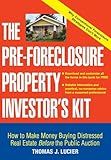
The Pre-Foreclosure Property Investor's Kit: How to Make Money Buying Distressed Real Estate -- Before the Public Auction


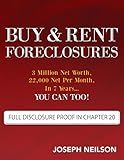
Buy & Rent Foreclosures: 3 Million Net Worth, 22,000 Net Per Month, In 7 Years...You can too!


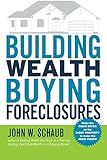
Building Wealth Buying Foreclosures


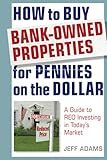
How to Buy Bank-Owned Properties for Pennies on the Dollar: A Guide To REO Investing In Today's Market


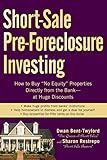
Short-Sale Pre-Foreclosure Investing: How to Buy "No-Equity" Properties Directly from the Bank -- at Huge Discounts


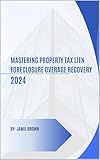
Mastering Property Tax Lien Foreclosure Overage Recovery


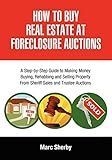
How To Buy Real Estate At Foreclosure Auctions: A Step-by-Step Guide to Making Money Buying, Rehabbing and Selling Property From Sheriff Sales and Trustee Auctions


Buying a foreclosure or short sale property can be a complex process but can offer potential savings for buyers. To begin, it's essential to understand the differences between the two. A foreclosure occurs when a homeowner fails to make mortgage payments, leading the lender to take possession of the property. A short sale, on the other hand, happens when the homeowner sells the property for less than the outstanding mortgage balance, with the lender's approval, to avoid foreclosure.
The first step in purchasing such properties involves understanding the market and doing thorough research on the property and its condition. Often, foreclosed properties are sold "as-is," so it's crucial to have a budget for repairs and an evaluation by a home inspector. It's advisable to work with a real estate agent experienced in foreclosures and short sales to navigate the process better. They can provide valuable insights into the complexities involved and help with price negotiations.
Next, securing financing is an important step. Some lenders might require pre-approval before making an offer, so it's essential to have your finances in order. When buying a foreclosure at auction, be prepared to pay in cash or have a very short window to arrange financing, as auctions often require immediate payment.
For short sales, patience is key. The process can take longer than traditional sales since it involves negotiation with the lender, who must approve the final sale price. Be prepared for a longer timeline and potential complications as the lender's approval is not guaranteed.
Finally, ensure all necessary due diligence is performed. This includes checking for any liens or unpaid taxes on the property, which could become the buyer’s responsibility. By gathering the right information, working with knowledgeable professionals, and being prepared for the unique challenges these types of purchases may present, buying a foreclosure or short sale property can be a successful venture.
How to plan for renovating a foreclosure property?
Renovating a foreclosure property can be a rewarding venture, but it also requires careful planning and budgeting. Here’s a step-by-step guide to help you through the process:
- Research and Purchase: Evaluate the Location: Research the neighborhood to ensure the property value will likely increase with renovations. Title Search: Conduct a thorough title search to ensure there are no hidden liens or legal issues. Professional Inspection: Hire a professional inspector to assess the property’s condition and uncover potential structural, electrical, or plumbing issues. Purchase Wisely: Work with a real estate agent experienced with foreclosures to help negotiate the best price.
- Budgeting: Estimate Costs: Consider all potential renovation costs, including materials, labor, permits, and unforeseen expenses. Prioritize Projects: List essential repairs (e.g., roofing, plumbing) versus cosmetic upgrades (e.g., landscaping, painting). Contingency Fund: Set aside at least 10-15% of your budget for unexpected costs.
- Financing: Loan Options: Explore financing options, such as FHA 203(k) loans or Fannie Mae's HomeStyle® Renovation loans, which cater to renovation projects. Cost-Benefit Analysis: Ensure that the anticipated increase in property value justifies the renovation expenses.
- Planning: Develop a Timeline: Create a realistic project timeline, accounting for potential delays. Permits and Regulations: Secure all necessary permits and ensure compliance with local building codes and regulations.
- Finding a Contractor: Research and Referrals: Find a reputable contractor with experience in similar projects. Check references and previous work. Detailed Contracts: Make sure your contract outlines the scope of work, timeline, costs, and payment schedule.
- Renovation Process: Monitor Progress: Stay actively involved by regularly visiting the site and communicating with the contractor. Quality Control: Ensure that the work meets quality standards and all inspections are passed.
- Finalizing: Walkthrough: Conduct a thorough walkthrough with your contractor to address any outstanding issues before final payment. Documentation: Keep detailed records of all work done, invoices, and permits, which can be useful for future resale.
- Staging and Selling/Renting: Staging: If the property is to be sold or rented, consider staging it to enhance its appeal to potential buyers or tenants. Marketing: Utilize online and traditional marketing strategies to attract buyers or renters. Pricing Strategy: Compare with local market sales to set a competitive and realistic price.
By following these steps, you can maximize the potential return on your investment and ensure a successful renovation project.
What is a real estate auction?
A real estate auction is a public sale process in which properties are sold to the highest bidder. These auctions can be conducted either in person, online, or through a combination of both. Real estate auctions are often used to sell properties quickly and can involve various types of real estate, including residential, commercial, and land.
There are a few different scenarios in which real estate auctions might occur:
- Foreclosure: Properties that have been foreclosed on by lenders are often sold at auction to recover the outstanding mortgage balance.
- Bank-owned Properties: Also known as REO (Real Estate Owned) properties, these are owned by lenders, typically banks, who have foreclosed on the properties and are selling them via auction to remove them from their books.
- Estate Sales: In cases where an estate is being liquidated, properties may be auctioned to facilitate a quicker and clearer distribution among heirs.
- Government Surplus: Government agencies may auction properties that are deemed surplus or seized due to legal issues.
- Private Sellers: Sometimes private sellers choose auctions as a way to generate competitive bidding and secure a quick sale.
In a real estate auction, the auctioneer or platform typically outlines the rules and terms of sale prior to the event. Bidders must usually provide evidence of financial capability, such as a deposit or proof of funds, to participate. Once a property is sold at auction, the transaction is typically expected to close within a short timeframe, sometimes with limited contingencies allowed.
Auctions can benefit sellers by creating urgency and competition among buyers, potentially leading to a higher final sale price. Buyers can potentially find properties at below-market prices but must be cautious and well-informed given the often limited inspection opportunities and the "as-is" nature of auctioned properties.
What is a distressed property?
A distressed property generally refers to real estate that is under some form of financial or legal distress, making it available for purchase at a potentially lower market value. Various factors can lead a property to be classified as distressed, including:
- Foreclosure: This occurs when the property owner fails to make mortgage payments, leading the lender to repossess the property.
- Short Sale: The homeowner sells the property for less than the amount owed on the mortgage, typically with the lender's approval, to avoid foreclosure.
- Bank-Owned or Real Estate Owned (REO): Properties that have gone through foreclosure and are now owned by the bank or lender.
- Tax Liens or Delinquencies: When property taxes are not paid, local governments can place a lien on the property or even auction it off to recover unpaid taxes.
- Bankruptcy: Property that is involved in the owner’s bankruptcy proceedings might be considered distressed.
- Physical Deterioration: Properties in poor physical condition or needing significant repairs and maintenance might also be considered distressed, particularly if the owner cannot afford to make necessary improvements.
Investors and buyers often seek distressed properties because they may be purchased at a discount, offering the potential for significant returns on investment after necessary repairs or market recovery. However, purchasing such properties can also involve additional risks and complexities, such as legal challenges, repair costs, and difficulty in financing.
